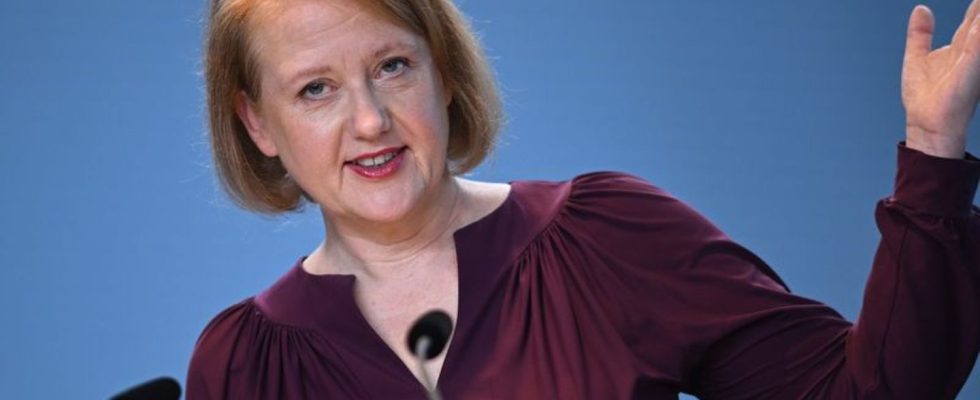Familys
Basic child protection: Civil service positions cause disputes
Federal Minister for Family Affairs Lisa Paus defends the planned basic child support. photo
© Britta Pedersen/dpa
The FDP is still dissatisfied – although the family minister has already weakened her demands. It remains unclear how much new staff might be necessary for social reform.
Government spokesman Steffen Hebestreit countered the impression that the reform was intended to create a bureaucratic monster. “The entire federal government is striving for the most efficient solution possible,” explained Hebestreit. Nobody “builds a large civil service apparatus out of jokes and foolishness”.
At the same time, he reiterated that the necessary positions for basic child welfare do not contradict the federal government’s goal of reducing bureaucracy. It is “difficult” to establish a connection between the two goals, since the federal government’s aim when it comes to basic child security is nothing less than combating child poverty. Regarding the size of the 5,000 new jobs, the government spokesman referred to the Federal Employment Agency’s calculation, which the federal government must adhere to and which is a “target figure”. The open questions about the specific design are currently being clarified in the parliamentary process.
With the basic child security, the federal government wants to bundle previous benefits such as child benefit, benefits from the citizen’s benefit for children or the child allowance into a single benefit. The aim is to ensure that all families who are entitled to corresponding benefits will receive them in full in the future. According to the Family Ministry, this has so far only been the case for a fraction. Basic child welfare is considered the Greens’ prestige social policy project. Parliament is currently discussing the controversial project, which is due to come into force next year.
Ricarda Lang: “These 5,000 jobs won’t exist”
When asked, the Ministry of Family Affairs was not yet able to provide any further information about what potential savings Minister Paus specifically believes is possible when creating new positions. The Green Party leader Ricarda Lang reiterated that, in her view, the previous job dimensions were outdated. “These 5,000 jobs won’t exist.” The question of how many positions are needed instead is the subject of parliamentary deliberations this week, she explained.
It initially remained unclear whether the Federal Employment Agency (BA) would now make a new assessment of the expected job requirements. In its statement on the draft law in November 2023, the BA spoke of an additional “5,355 full-time equivalents” that would be necessary to implement basic child welfare. It also says that this would result in twice as many staff as in the current family fund. In response to a dpa request, the BA also announced that around 5,800 employees are currently responsible for calculating and paying out child benefit and child benefit supplements. In total, child benefit goes to 17.2 million children – one million also receive the child allowance.
Paus relies on digitalization
Family Minister Paus emphasized at the weekend that she had no plans to create a new authority. “We are strengthening the family budget,” she said. “Through digitalization, we enable families to be actively addressed when they are entitled to additional services.”
FDP General Secretary Bijan Djir-Sarai, on the other hand, warned against sending the wrong signals to families with basic child welfare. Unlike Paus, he sees no “obligation” on the part of the state when it comes to social benefits. “My idea is that we focus on personal responsibility and strengthen personal responsibility at the point,” emphasized Djir-Sarai. The core of child poverty in Germany is usually the parents’ unemployment. “We have to get there and create the incentives so that people can return to the job market.”

